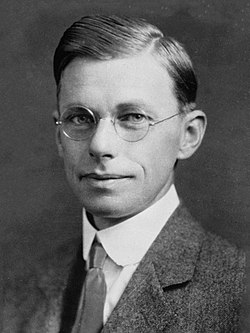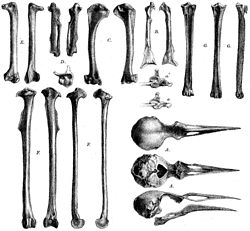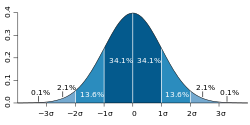Portal:Science
Science portal

Science is a systematic discipline that builds and organises knowledge in the form of testable hypotheses and predictions about the universe. Modern science is typically divided into two or three major branches: the natural sciences (e.g., physics, chemistry, and biology), which study the physical world; and the social sciences (e.g., economics, psychology, and sociology), which study individuals and societies. Applied sciences are disciplines that use scientific knowledge for practical purposes, such as engineering and medicine. While sometimes referred to as the formal sciences, the study of logic, mathematics, and theoretical computer science (which study formal systems governed by axioms and rules) are typically regarded as separate because they rely on deductive reasoning instead of the scientific method or empirical evidence as their main methodology. (Full article...)
Featured article -
Featured pictures
Vital articles
Energy (from Ancient Greek ἐνέργεια (enérgeia) 'activity') is the quantitative property that is transferred to a body or to a physical system, recognizable in the performance of work and in the form of heat and light. Energy is a conserved quantity—the law of conservation of energy states that energy can be converted in form, but not created or destroyed. The unit of measurement for energy in the International System of Units (SI) is the joule (J). (Full article...)
Did you know...
- ... that Margareth Rago seeks to establish a methodology for what she calls "feminist science"?
- ... that public health measures and advances in medical science in modern human history helped raise global life expectancy from about 31 years in 1900 to over 66 years in 2000?
- ... that E. F. Bleiler conducted research for Science-Fiction: The Gernsback Years by reading all 1,835 stories published in science fiction magazines between 1926 and 1936?
- ... that the documentary film I Am Human has been the conversation starter for neuroscience panel discussions at universities such as Harvard?
- ... that the magazine Science Fiction Chronicle changed its name to just Chronicle two decades after its launch, to avoid being confused with the San Francisco Chronicle?
- ... that at the age of 14, Jenny Suo conducted a science experiment that ultimately led to GlaxoSmithKline pleading guilty to breaching consumer protection laws?
Get involved
| This portal needs to be updated. Please help update this portal to reflect recent events or newly available information. Relevant discussion may be found on the talk page. |

|

|
Science News
- 16 April 2025 –
- A colossal squid is filmed in the Southern Atlantic Ocean for the first time since the species was discovered in 1925. The 30 cm (12 in)-long juvenile was filmed by a team of scientists led by the University of Essex near the South Sandwich Islands at a depth of 600 m (2,000 ft). (BBC News)
- 14 April 2025 – Blue Origin NS-31
- A Blue Origin New Shepard launch vehicle makes a brief sub-orbital spaceflight, carrying six female space tourists, marking the first all-female spacecraft since 1963's Vostok 6 which had Valentina Tereshkova as the pilot and the spacecraft's sole passenger. (NPR) (USA Today)
- 1 April 2025 – Private spaceflight
- SpaceX successfully launches four humans into orbit over Earth’s poles for the first time for the human spaceflight mission Fram2. The journey will last three to five days. (The New York Times)
- 26 March 2025 –
- Scientists discover Mongolian dinosaur Duonychus tsogtbaatari. (NBC News)
- 25 March 2025 –
- A 6.7 magnitude earthquake hits New Zealand causing a tsunami warning to be issued. A tsunami was then spotted in Fiordland. [1]
- 7 March 2025 – Stand Up for Science 2025
- Organized demonstrations and walkouts of scientists take place across 30 cities in the United States and France in protest of the Donald Trump administration's grant budget and employment cuts to several government scientific agencies. (AP)
Related portals
Top 10 WikiProject Science Popular articles of the month -
Categories -
































































